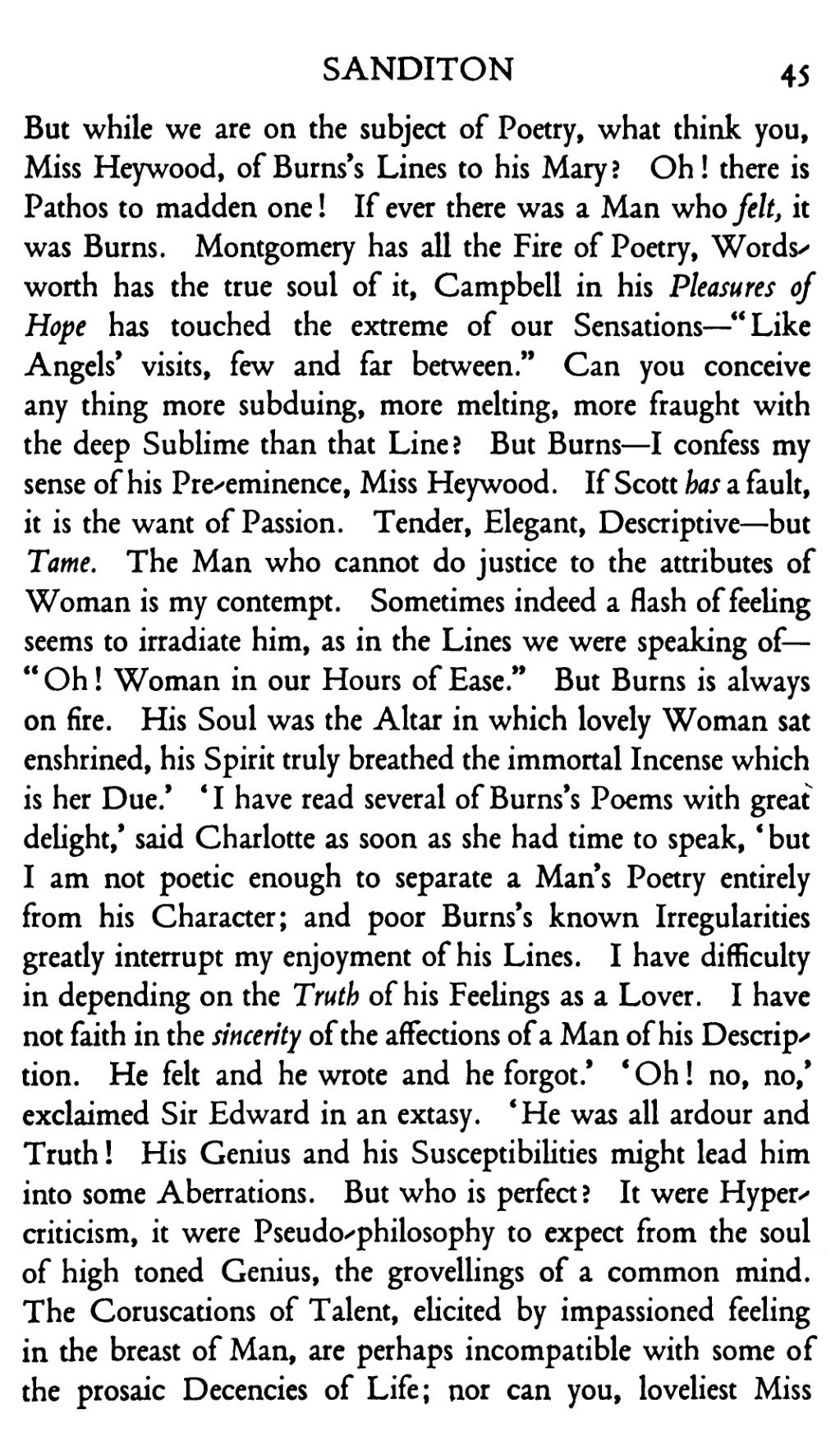But while we are on the subject of Poetry, what think you, Miss Heywood, of Burns’s Lines to his Mary? Oh! there is Pathos to madden one! If ever there was a Man who felt, it was Burns. Montgomery has all the Fire of Poetry, Wordsworth has the true soul of it, Campbell in his Pleasures of Hope has touched the extreme of our Sensations—“Like Angels’ visits, few and far between.” Can you conceive any thing more subduing, more melting, more fraught with the deep Sublime than that Line? But Burns—I confess my sense of his Pre-eminence, Miss Heywood. If Scott has a fault, it is the want of Passion. Tender, Elegant, Descriptive—but Tame. The Man who cannot do justice to the attributes of Woman is my contempt. Sometimes indeed a flash of feeling seems to irradiate him, as in the Lines we were speaking of—“Oh! Woman in our Hours of Ease.” But Burns is always on fire. His Soul was the Altar in which lovely Woman sat enshrined, his Spirit truly breathed the immortal Incense which is her Due.’ ‘I have read several of Burns’s Poems with great delight,’ said Charlotte as soon as she had time to speak, ‘but I am not poetic enough to separate a Man’s Poetry entirely from his Character; and poor Burns’s known Irregularities greatly interrupt my enjoyment of his Lines. I have difficulty in depending on the Truth of his Feelings as a Lover. I have not faith in the sincerity of the affections of a Man of his Description. He felt and he wrote and he forgot.’ ‘Oh! no, no,’ exclaimed Sir Edward in an extasy. ‘He was all ardour and Truth! His Genius and his Susceptibilities might lead him into some Aberrations. But who is perfect? It were Hyper-criticism, it were Pseudo-philosophy to expect from the soul of high toned Genius, the grovellings of a common mind. The Coruscations of Talent, elicited by impassioned feeling in the breast of Man, are perhaps incompatible with some of the prosaic Decencies of Life; nor can you, loveliest Miss
